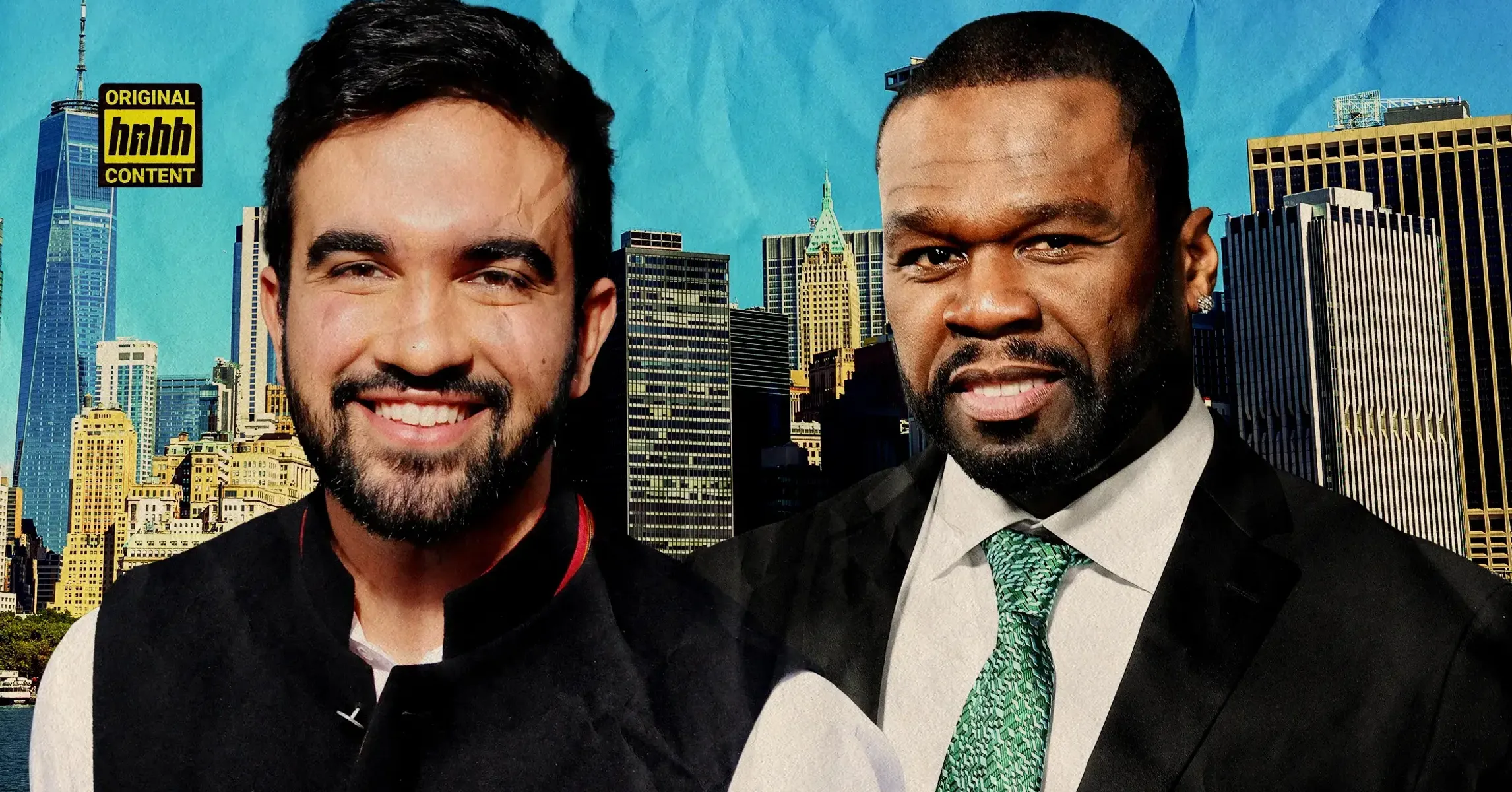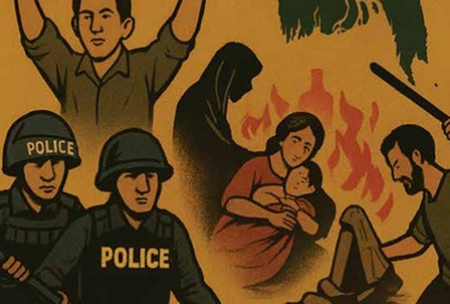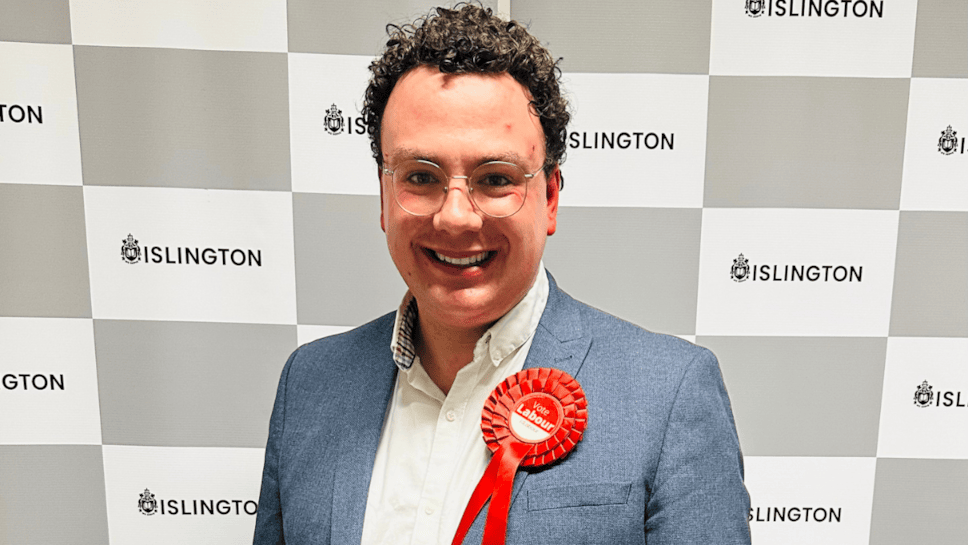Copyright HotNewHipHop

“New York, the real New York, I’m outside. I don’t live in Miami, I don’t live in Colorado. Come to my block and see me, my n***a. Harlem, y’all know I’m down there. This is Kiss. I’m outside. Always D-Block.” – Jadakiss There’s something comparable to the energy that Jadakiss gave on the night of the LOX and Dipset’s Verzuz to Zohran Mamdani’s win in New York’s mayoral race. During a campaign that was smeared along the way—though never effectively—Mamdani carried a resilience that felt like Jadakiss on that Verzuz stage against Dipset. Of course, that was amplified by his choice to enter the stage to Ja Rule’s “New York” ft. Jadakiss and Fat Joe—a song that not only once united 50 Cent’s then-opps but also felt like an incontestable blow to Dipset’s hubristic attitude that evening they faced off against The LOX. Much like how many of the predictions underestimated The LOX, Mamdani channeled Jadakiss’ energy during his victory speech, where he vowed to stand up for New Yorkers. His choice of song cemented him as a breath of fresh air for the city, and his campaign ultimately proved that, unlike the competition, he was really, really outside. Whether you like him or not, Mamdani understood his generation and the one that came after. His use of social media worked as effectively as the Trump campaign did in 2024, as evidenced by appearances on the Flagrant podcast and New York hip-hop-centered media like Hot 97 and The Breakfast Club. The old guard had Andrew Cuomo, and look where they got them: an endorsement from Donald Trump and Michael Rapaport, which basically proves that capitalism and justifying Israel’s violent occupation of Palestine, Lebanon, and Syria are worth overlooking 15,000 dead seniors and over a dozen credible allegations of sexual harassment. Even with a system working overtime against him, including a network of billionaires funding Cuomo and slanderous campaigns, Mamdani held steady and ultimately won over half the votes. The Mamdani Effect Zohran Mamdani works the crowd at the 2025 NYC Pride March on June 29 in New York City. Image via Imagn It’s hard to deny that Mamdani’s likability comes from his relatability. For many millennials, it’s not only in his principles and political stances but also in his music taste. Mamdani’s connection to hip-hop is deep-rooted; there’s videographic evidence of his aspiring rap career under the moniker Mr. Cardamom. David Dinkins earned a co-sign from A Tribe Called Quest on “Can I Kick It,” and while Mamdani hasn’t yet earned a shout-out in New York rap’s pantheon, his grassroots approach to campaigning reflects the hip-hop that raised him. That love was intertwined throughout his campaign. He admitted that Das Racist alum Heems’ endorsement of Ali Najmi for City Council jump-started his political career. In the lead-up to the election, opponents tried to link his annual July 4th post of Dipset as proof that he’s “pro-terrorist.” The Islamophobia in the race made it clear that his detractors would go to great lengths to smear him, even over pictures of Dipset posts. At a time when hip-hop was criticized for its absence from the Billboard charts and Grammys, the rap community also stayed largely quiet during Mamdani’s mayoral run, despite his agenda serving many of the same neighborhoods that shaped these artists. Jim Jones, Maino, and Dave East campaigned for Eric Adams, even as Adams’ policing and housing policies disproportionately harmed Black and Brown communities. Dave East seemingly switched sides just in time for the release of Karma 4, but that’s neither here nor there. Since the failed Harris presidential run, celebrity endorsements have lost some political punch, but they remain a goldmine for campaigns if leveraged authentically. Zohran Mamdani Vs. 50 Cent Mamdani’s strategy mirrored some of hip-hop’s greatest beefs, punctuated by stepping out to Ja Rule’s quintessential New York anthem for his victory. This came after inflammatory comments from 50 Cent, who opposed higher taxes on the 1% of New Yorkers making $1 million or more. Fif declared New York “dead” and invited ex-pats to Shreveport, Louisiana. Mamdani poked fun at Fif on The Breakfast Club, launching what felt like a hilarious spat between the mayor-elect and hip-hop’s boldest bully. And yet, Mamdani took a page out of 50 Cent’s book. Entering to the instrumental of “New York” was more than a victory song—it was a petty and strategic cultural statement. The track’s history ties one of the biggest rap feuds in New York through Ja Rule’s verses critiquing 50 (and even invoking Donald Trump), and reinforces that connection. Jadakiss and Fat Joe’s appearances on the song further amplified the symbolism. Tying up a campaign with a pointed cultural jab was not only appropriate but a moment of vindication for a candidate who faced backlash for very little actual controversy. Fif continued posting on Instagram, but his feud with Mamdani is likely rooted in fearmongering New Yorkers over tax proposals rather than a genuine threat to socialism-lite initiatives aimed at affordability—policies far removed from Fif’s current reality. It’s worth noting that Mamdani has represented Queens, Fif’s stomping grounds, for years. As easily as this could have been a performative act to draw in younger voters, Mamdani proved he could walk the walk. Understanding the dynamics of hip-hop, specifically rap beef, made his campaign captivating from the start. Fif’s “Many Men” became an emotional and existential undercurrent—not because of Fif personally, but as a reflection of the resilience required in a city where Muslim New Yorkers were vilified after 9/11. In Mamdani’s words, it’s a song that resonated as death threats mounted against him. The Politics Of Rap Beef The spirit of hip-hop was present throughout his campaign. Much like New York’s mixtape ecosystem relied on hand-to-hand distribution, Mamdani mobilized door-to-door, engaging residents directly, regardless of political affiliation. That approach captured the attention of Wu-Tang Clan, Run The Jewels, and The LOX, who praised what came across as the most refreshing political campaign in modern New York. Mamdani also drew inspiration from the 2024 Drake-Kendrick feud, using it as a blueprint for debate strategy against Cuomo and Sliwa. “Kendrick absolutely destroyed him. It’s a testament to message discipline over many songs, and it’s an inspiration for me as a politician to always stay on my message. I try to do what Kendrick did, but around affordability. At every juncture, he would bring it back to his core points, and that’s key. For me, it’s about the fact that New Yorkers can’t afford to live in the city they call home,” he told Pitchfork. In debates, Mamdani sliced through Cuomo methodically, while the former governor’s attempts to undermine him felt akin to “Taylor Made Freestyle.” Mamdani’s haymaker: “What I don't have in experience, I make up for in integrity, and what you don't have in integrity, you could never make up for in experience.” It wasn’t “Not Like Us,” but it landed like Jadakiss dropping “I Shot Ya” against Dipset. Since the Democratic primaries, Mamdani has been the underdog rising to the top, crushing the establishment from both sides. But perhaps Mamdani’s most convincing clapback came during the early parts of the Democratic primaries. During the Democratic debate, when each of the candidates said their first trip as mayor would be to Israel, Mamdani assured New Yorkers that his focus would be the five boroughs and maintained that position even as he was smeared as anti-Semitic. But through the noise of foreign influence and multi-million-dollar political attacks, it only proved that Zohran Mamdani, like Jadakiss on that Verzuz stage, was truly outside with the real New York.



